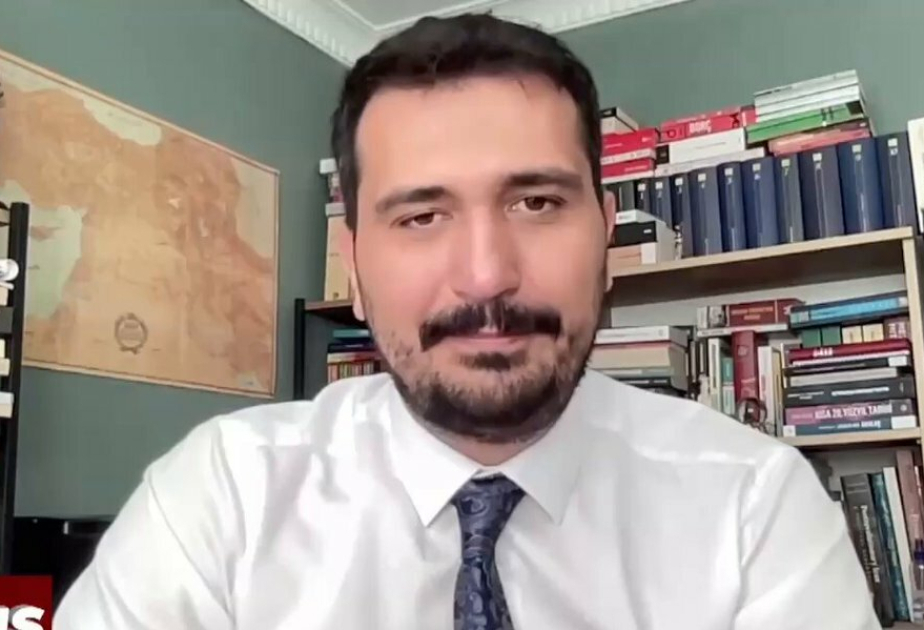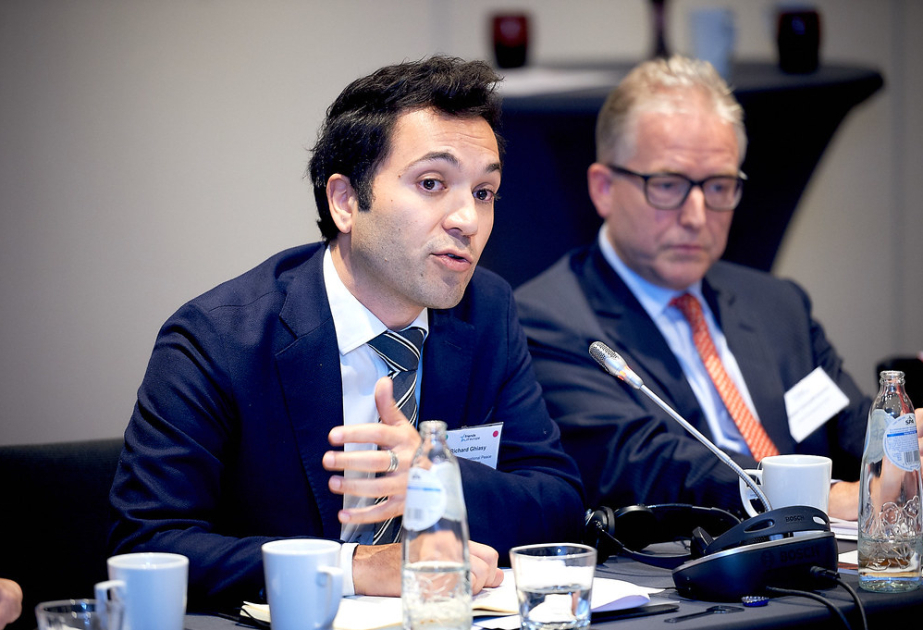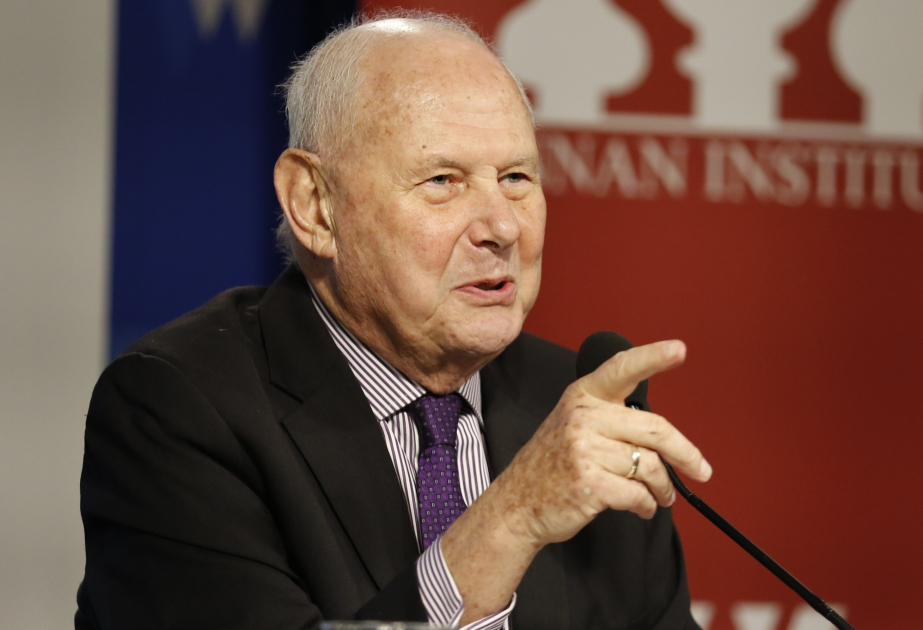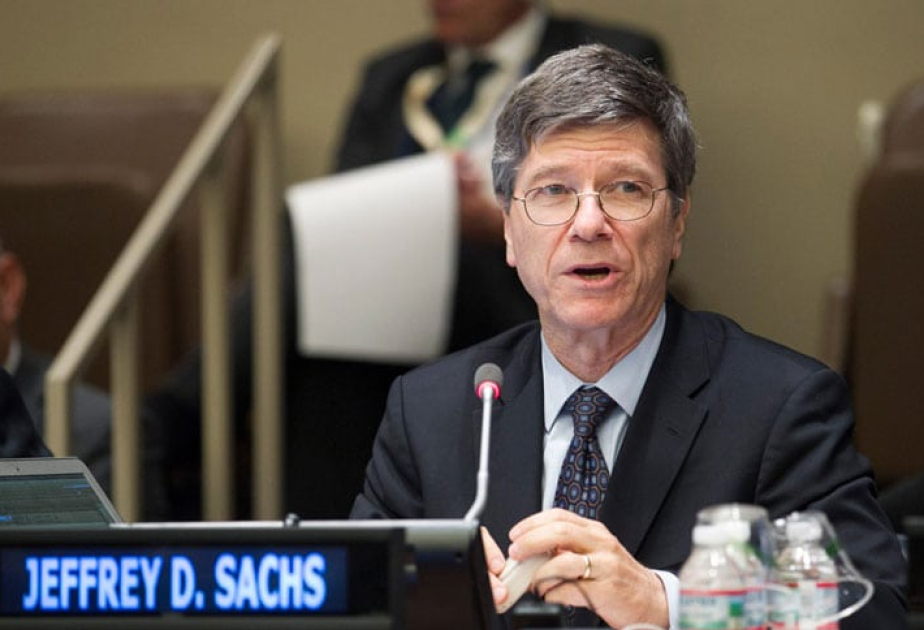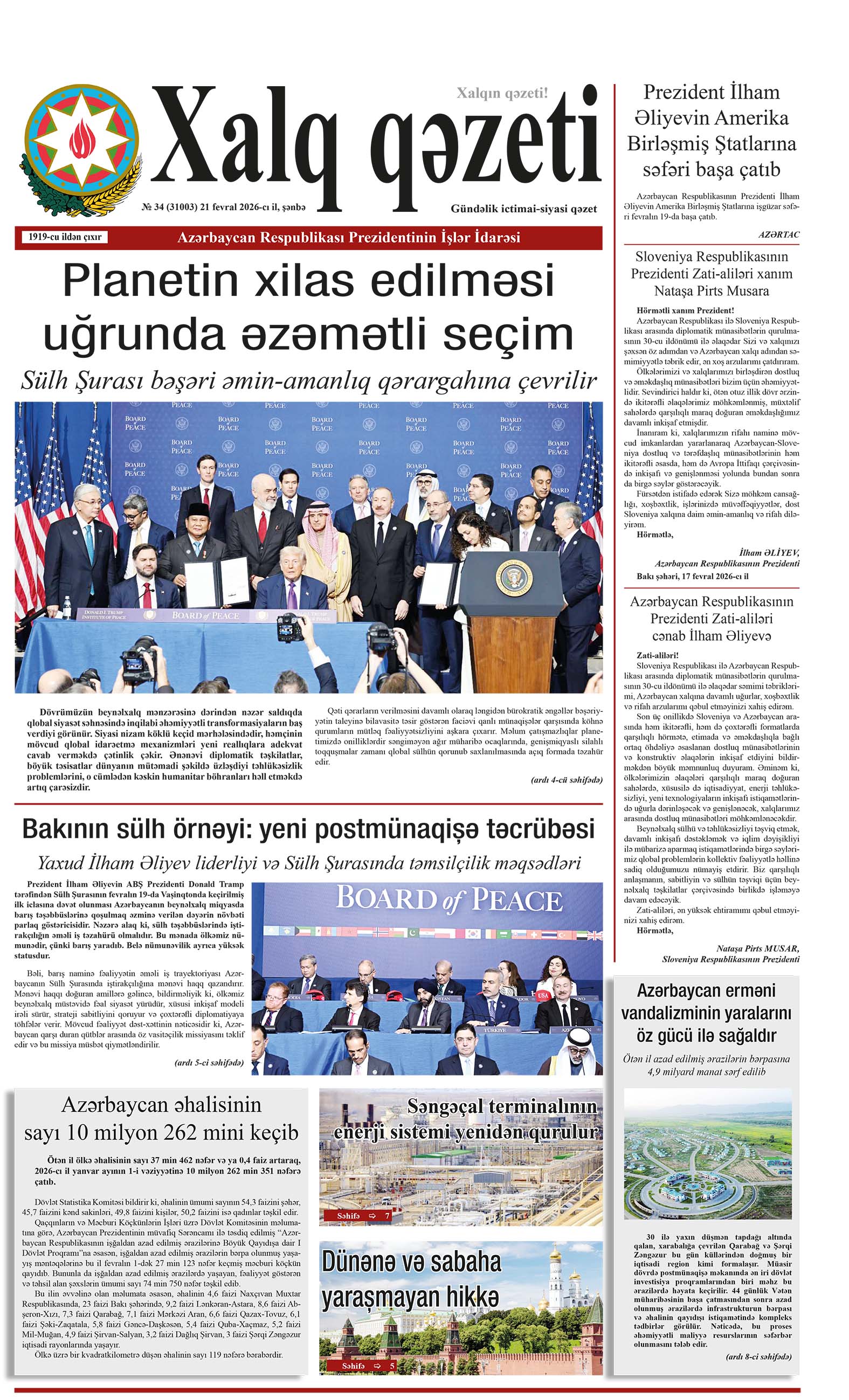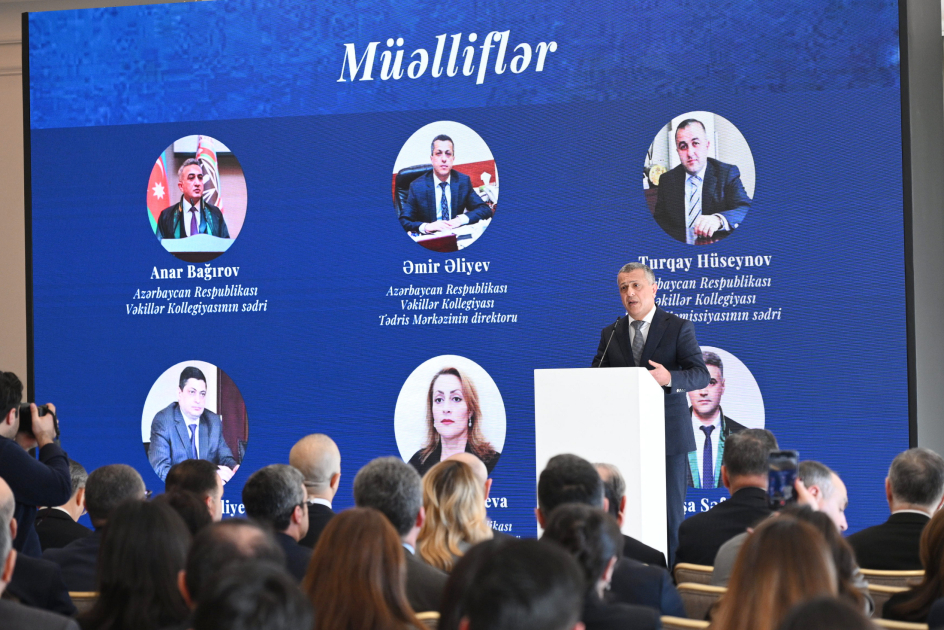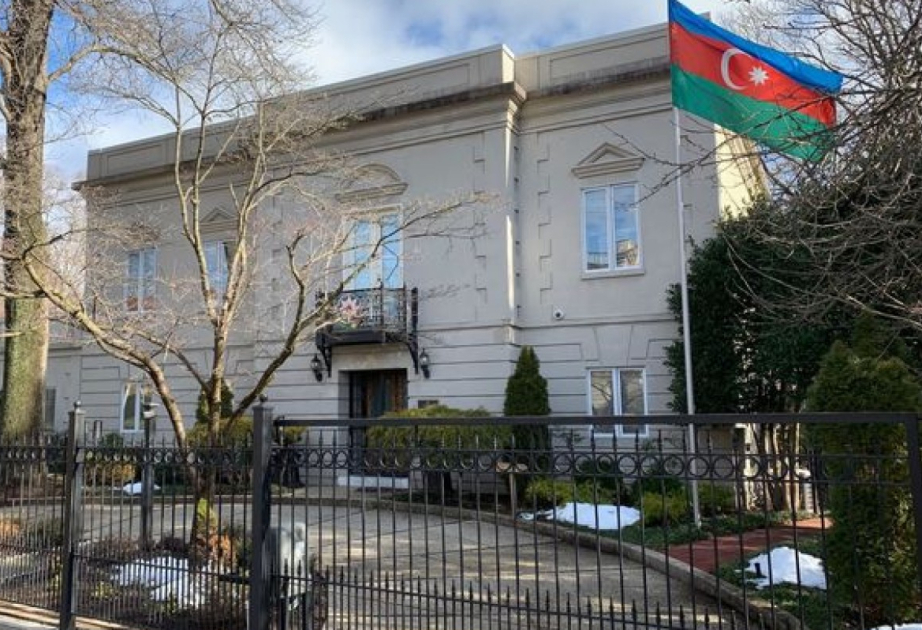ECONOMY
Expert: SOCAR and Azerbaijan's oil and gas industry are of greatest interest to the UK - INTERVIEW
The Azerbaijan State News Agency (AZERTAC) presents an interview with British expert Neil Watson.
-How would you characterize the current state of economic relations between Azerbaijan and the UK? In which key sectors is there the most active cooperation?
- The current state of UK-Azerbaijani economic relations remains extremely buoyant, with cumulative trade in goods and services (exports plus imports) between the UK and Azerbaijan amounting to a massive £1.1 billion in the four quarters to the end of Q3 2024. Total UK exports to Azerbaijan amounted to £839 million, and total UK imports from Azerbaijan equated to £244 million during this period. Most economic activity remains related to the oil and gas industry, with crude oil imports to the UK amounting to GBP 92.5 million and activity in both directions being related to general industrial machinery, although it is notable that the front-running UK export to Azerbaijan is cars, amounting to GBP325.8 million, although mechanical power generators, iron and steel and general industrial machinery collectively equated to GBP 83.9 million. Collaboration in heavy industry, much related to oil and gas certainly remains in first place, although construction, infrastructure and the automotive sector are extremely important. In the first two months of 2025, Azerbaijan exported a significant 130,600 tons of crude oil and oil products derived from bituminous rocks to the UK, according to the Azerbaijani State Customs Committee.
-What is the total volume of British investment in the Azerbaijani economy? Which projects are the most significant?
- FDI from the UK to Azerbaijan amounted to USD1.86 billion in 2023, and from 1995–2022, the UK's investments in Azerbaijan surpassed USD35.9 billion, making it the greatest investor in the Azerbaijani economy since the regaining of independence in 1991, the turning point being the signing of the Contract of the Century with a BP-led Consortium in 1994. The projects of the greatest interest remain the ACG field, the production-sharing agreement for which has been extended to 2050; the Shah Deniz projects; the Southern Gas Corridor, which transports Azerbaijani Caspian gas to Turkiye and thereafter to Europe via an Italian interconnector; and the commencement of production from the Central East Azeri field. The initiation of the British Chamber of Commerce in Azerbaijan and the Azerbaijan Investment Company (AIC), the latter being aimed at increasing the level of investment diversified beyond the oil and gas sector, are continuing to maintain and expand the amount of UK FDI into the Azerbaijani economy.
-Which Azerbaijani companies or sectors are of interest to British investors?
- Naturally, SOCAR and the oil and gas industry are of greatest interest to the UK, although other active sectors include oil and gas, infrastructure, financial services, automotive, education, and retail. Currently, there is a high level of intergovernmental collaboration in the renewables energy sector via the Azerbaijani Renewable Energy Agency under the Ministry of Energy, as the country is blessed with extensive sun and wind country, together with sizeable hydro, biomass and geothermal resources. Azerbaijan is currently enhancing its infrastructure, revitalizing its Silk Road legacy via construction of the Middle Corridor. The UK's expertise in design and architecture, digital construction, modern methods of construction, and clean buildings is acknowledged, and British involvement in the Middle Corridor is extensive, with great potential for further development. The UK government and UK companies are also involved in demining the liberated territories and their renovation, construction and reconstruction as model ’smart cities’.
-What role does the UK play in the energy sector of Azerbaijan? How important is cooperation with bp in the development of oil and gas fields?
- It is undeniable that the UK, via the aegis of BP, has and does play a central role in the development of the energy sector of Azerbaijan. The signing of the Contract of the Century between SOCAR and the BP-led AIOC consortium and the resultant production-sharing agreements have enabled Azerbaijan to benefit from its hydrocarbon’s resources. This has enabled it to steer a path as the most independent and self-sufficient former Soviet republic and to adopt a non-aligned and pragmatic foreign policy. Without BP investment, infrastructure, technology and workers, the successful and efficient exploitation of Azerbaijani energy resources would have been impossible.
-What are the prospects for cooperation in the field of renewable energy?
- Azerbaijan has a high potential for capitalizing on renewable energy sources. Collaboration between the UK and Azerbaijan regarding the renewables sector is already taking place. Much of the technology regarding the future exploitation of Azerbaijani renewable energy generation emanates from the UK. The AIC, Azerbaijani Ministry of Energy, British Expertise and British Chamber of Commerce Azerbaijan are all working to ensure that British technology in the renewables sector is utilized effectively and efficiently, enabling Azerbaijan to achieve its Paris Agreement targets and to use its hydrocarbons resources in the most efficient and profitable manner. It is noteworthy that, only last week, The British Embassy in Baku and the Central Bank of Azerbaijan (CBA) hosted the Partnership for Carbon Accounting Financials (PCAF), and the British Standards Institution (BSI) to deliver carbon accounting training to Azerbaijani banking organizations.
Azerbaijan has made significant progress in renewable energy development, notably with the Garadagh Solar Power Plant, which has a capacity of 230MW, making it the largest solar facility in the Caspian region. This plant will reduce carbon emissions by approximately 200,000 tons a year. In addition to solar energy, Azerbaijan is investing in wind energy projects. The Khizi-Absheron Wind Farm, located in the Khizi and Absheron districts, is set to have a capacity of 240MW. This project aims to mitigate the impact of 400,000 tons of carbon emissions annually. Azerbaijani economic potential for renewables is estimated at 27GW, including 3000MW of wind energy, 23000MW of solar energy, 380MW of bioenergy, and 520MW of hydropower.
-What steps are being taken to develop financial cooperation, including fintech and digital payment systems?
- It is notable that the recent Novruz Bayram celebration, hosted in the historic Mansion House in the heart of the City of London, the financial hub of the UK capital, was partially organized by Guavapay, a leading UK fintech company founded by an Azerbaijani entrepreneur. A major emphasis of the British Chamber of Commerce Azerbaijan is on financial collaboration, and such organizations as the World Bank and ACCA are working to ensure that the Azerbaijani banking sector is robust, green, and commensurate with international norms, laws and agreements. Azerbaijan is a technologically-advanced country, at times even to a greater extent than the UK, and there are tremendous opportunities for UK-based fintech companies.
- Are there any British investments in the development of transport infrastructure in Azerbaijan, including ports, railways and airports?
-Certainly, UK companies are extremely interested in the Baku International Sea Trade Port and other parts of the Middle Corridor. This provides UK companies with an opportunity to benefit from the bonded warehouses and port facilities to establish trade routes with Central Asia. The UK Government is always present at the BakuBuild and Caspian International Road Infrastructure and Public Transport exhibitions and has supported British companies who wish to participate in the reconstruction of the infrastructure in the liberated territories.
-How does the UK view Azerbaijan in the context of international transport corridors, such as the Middle Corridor?
-There have now been two ultra-high-level large-scale events dedicated to the Middle Corridor in Central London, hosted by the Caspian Policy Centre and attended by Ambassadors from all the participating or potentially benefiting countries. The warmth of the response from all stakeholders, including representatives of the UK government, has been universally positive, not least because the route bypasses Russia and reduces the China-Europe journey time for a container to around 15 days (previously 30–60 days).
This comes in the wake of Azerbaijan and Armenia normalizing their relations and coming close to finalizing a peace treaty, which in itself has been received warmly by the UK Government; increased levels of engagement and investment from a diverse array of global donors; greater understanding and collaboration across the Turkic world; the enduring ramifications of the Russo-Ukrainian conflict and its threats to trade, infrastructure and energy supplies; matters concerning Black Sea security; the ongoing energy transition, and the increasing significance of critical minerals. The UK–Azerbaijani relationship is definitely evolving and changing in the wake of international conflicts and climate change, but it is undeniably established and longstanding.







